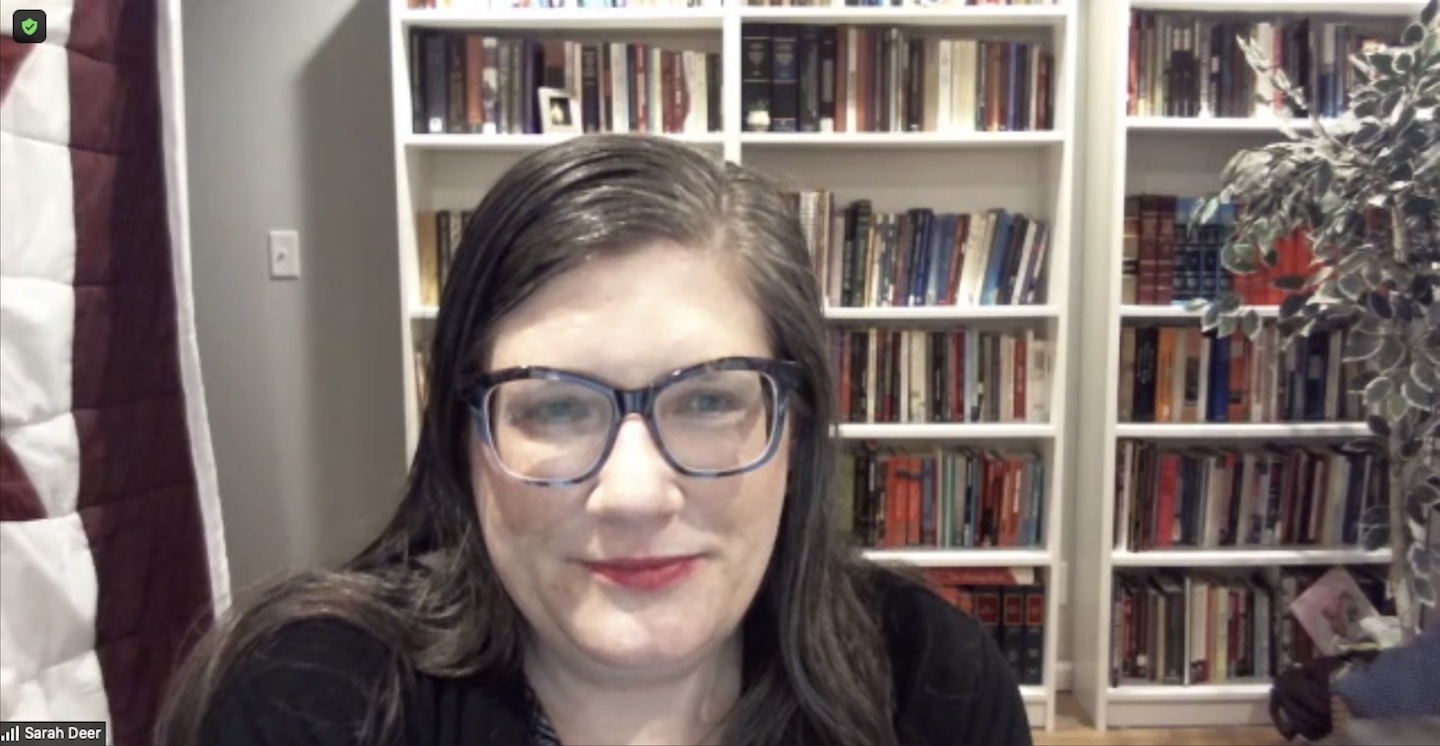Deer examines violence against Native people
November 12, 2021
 Sophie Yook
Sophie YookOn Thursday evening, the Native American Student Association (NASA) and the Office of Gender Violence Prevention and Education (OGVPE) welcomed Native American lawyer and professor Sarah Deer to speak about historical violence against Indigenous people, specifically emphasizing violence prevention for Native women.
A citizen of the Muscogee (Creek) Nation of Oklahoma, Deer is a distinguished scholar and activist for criminal justice reform on Native reservations. In addition to receiving recognition from the American Bar Association and the Department of Justice for her work, her book, “The Beginning and End of Rape: Confronting Sexual Violence in Native America,” has earned multiple awards, including Best First Book from the Native American Indigenous Studies Association.
“It means that my book matters,” Deer said. “I try to focus upon the end goal, which is to inform the public—not just other professors in the field—but the average layperson who needs and seeks the information.”
With this goal in mind, Deer accepted the invitation to connect with Bowdoin students through her talk titled “Safety and Sovereignty: The Story of Violence Against Native Women and Two-Spirit (LGBTQ+) People.” The lecture took place over Zoom with a watch party on campus in Lancaster Lounge. During the talk, Deer imparted information concerning the historical context of domestic violence and sexual assault against Native people as well as the implications of changes to Federal Indian law with regard to tribal well-being and autonomy.
On its surface, tribal sovereignty grants Indigenous tribes within the jurisdiction of the United States the right to govern themselves. However, state and federal actions—and inactions—continue to challenge this right and exacerbate the imbalance in governmental power.
“When it comes to sovereign nations, [tribal] sovereignty has been and continues to be under threat,” Deer said during the talk. “We have had to fight and scratch for every power that we are entitled to as a sovereign nation.”
Extending the discussion of sovereignty beyond its political and legal borders, Deer also spoke to its consequences for Indigenous women. She provided statistics that revealed how efforts to diminish tribal nation powers perpetuated and exacerbated acts of violence, with Native women suffering the highest rates of domestic violence and sexual assault in the nation.
“As an individual, we should have the right to decide what happens to our body, what gives us pleasure and what we don’t want to have,” Deer said.
Holding an officer position in NASA and a job at the OGVPE, Amory Malin ’24 worked to organize the event in an effort to bring together her two passions and educate her peers about Indigenous issues. As an activist for Missing and Murdered Indigenous Women, Malin worked with Interim Director of OGVPE Rachel Reinke to bring Deer to Bowdoin with the aim of facilitating conversations about places where the prevalence of violence remains.
“I am really excited that Amory has taken the initiative to bring Professor Deer to our campus,” Reinke said. “We already know that the stories of Indigenous women are oftentimes lost in the mainstream of daily life, yet they are one of the groups of people that encounter the most violence institutionally and individually.”
As the presentation came to a close, however, Deer reminded the audience that one should not view Indigenous men and women solely as victims rather than people in their own right. The lens of victimization harms the constructs of identity, confining an entire group of people to a single label that erases their individuality.
“I always like to remind folks that we should not be defined by those harms,” Deer said. “We are resilient people, and [we] should be understood as whole human beings who are hurting.”
Together, NASA, the OGVPE and Deer encourage Bowdoin students to engage with these issues in order to learn how to best end violence not only on the Bowdoin campus, but in the world as well.

Comments
Before submitting a comment, please review our comment policy. Some key points from the policy: